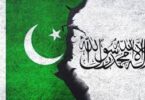Addressing the 19th meeting of the Heads of State of Shangai Cooperation Organisation (SCO), Prime Minister Imran Khan highlighted the opportunities of foreign direct investment and available but untapped huge natural resources in Pakistan. He dwelt at length on the creative and productive potential of its 65 percent young population, perhaps making an oblique reference to Ragnar Nurkse’ s master piece theory of capital formation and economic development. In this regard he eulogized the skills of human resource, drew the attention of SCO member countries to the unexploited mineral resources, tourism potential and flourishing Information Technology infrastructure in the country.
The Prime Minister has strongly articulated his point of view about the Pakistan’s immense potential of natural and human resources for attracting foreign direct investment, which has decline to the lowest level of $ 750 million and the flight of domestic capital is going on at an accelerated speed. The same theme was always harped on by his predecessors Nwaz Sharif while addressing the forums of Regional Economic Integration. The Planning Minister in the last PML-N government, Ahsan Iqbal once in his lavish rhetoric presented Pakistan as investment heaven. Dozen of Memoranda of Understanding MoUs had been signed with SCO member countries, the UK and EU countries in the last Nawaz Sharif government but none of them moved forward to the stages of letter of intent and financial close barring the implementation of few road projects, health hazardous obsolete technology coal based thermal power projects and Lahore Orange Train project under the umbrella of CPEC. Ironically, the proposed Chinese conditions for funding Diyamer Basha dam were against the national interest and the mega project had to be withdrawn from the CPEC framework.
Contrary to the claims and intellectual discourses of the PTI leadership, when it was in opposition, it did not give new economic vision and direction to steer the country out of the prevailing crisis. The oblivious attitude of the government towards tackling the macroeconomic imbalances has frustrated the people in general and business community in particular. The recessionary trend of business cycle is fast heading towards financial crisis. Lack of inaction by the State Bank of Pakistan, because of the free float echange policy Rupee is losing its value against the US dollar, Euro, Pound Sterling and other major currencies of international trade. Just in two days, the local currency has lost its value by Rs.5 against the US dollar which was traded at Rs.157 in the open market.
Tax collection is dismal and compliance cost is high. In order to make the existing inelastic and regressive tax regime progressive to certain extent, the World Bank has approved a soft loan of $51.8 million to buttress the intended measures of the government for additional revenue generation with reduced compliance cost. The fiscal measures of high rate indirect taxes and burdening over and over the already compliant taxpayers still continues. The upper hand of feudal class in the decision making has made the imposition of agriculture income tax impossible for which not only the independent economists but a member of the Prime Minister Economic Advisory Council was forcefully pleading.
The Prime Minister has genuinely lime lighted the tourism potential of the country and progressing IT structure. But the human resource skills are neither that advanced nor the technological base of the existing industrial infrastructure. That is why the Chairman State Engineering Corporation felt compelled to advise the business leaders at a meeting of Islamabad Chamber of Commerce and Industry to induct 4th and 5th generation technologies if they want joint ventures with Chinese investors in the planned 9 special economic zones. In the aftermath of federal budget for the next fiscal year industrialists have demanded the formulation and announcement of compressive industrial policy, which has been neglected by successive governments since 1972. The higher education institutions of sciences, engineering and technology are plagued by dearth of equipments, chemicals, lack of subscription for the top notch international research journals and non-availability of the latest edition of useful books.
The tariffs of electricity and gas and the rate of interest on bank credit are the highest in Pakistan. Direct foreign investment does not come in the unfavourable economic environment and low level skill of the domestic working force and industrial which is stuck in the second generation technology.






